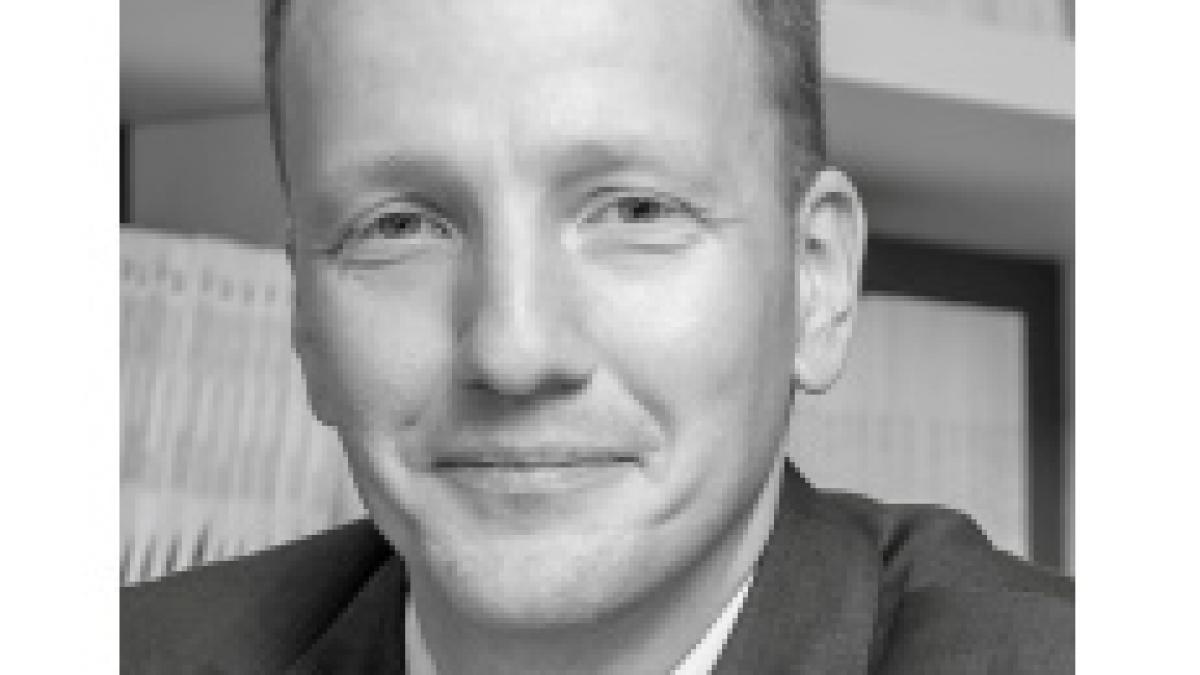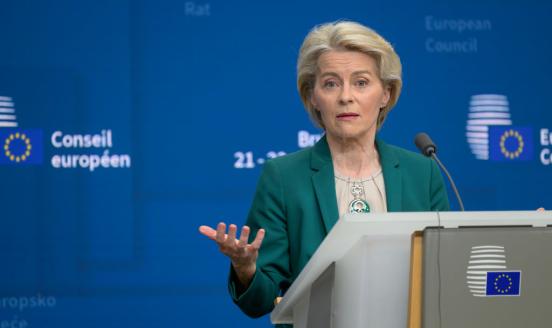Guntram Wolff appointed Director of Bruegel
Bruegel’s members yesterday confirmed the decision of its Board of 13 May 2013 to appoint Guntram Wolff as Director. Dr. Wolff replaces Jean Pisani-Fe

Bruegel’s members yesterday confirmed the decision of its Board of 13 May 2013 to appoint Guntram Wolff as Director. Dr. Wolff replaces Jean Pisani-Ferry, who left Bruegel at the end of April to take up a position in the French government. This appointment is the culmination of a search process begun in November 2012, led by José Manuel Campa.
This interview was given by Bruegel's Director Guntram Wolff and Chairman of the Board Jean-Claude Trichet to journalist Sandra Gathmann following the members' decision.
What were the different stages involved in finding a new Director?
JCT: The Board undertook a very thorough search process that started last year in November. Under the leadership of Board member Jose Manuel Campa, a large list of candidates was examined and this culminated in a short list of candidates that was examined by the full Board of Bruegel in a number of sessions. At the end of the process, we unanimously agreed to appoint Guntram and I am very happy that our choice was confirmed by all Bruegel members.
Which of the new Director’s characteristics make him a good choice to lead Bruegel?
JCT: Guntram is a young and dynamic leader that has already, in his role as deputy director, advanced Bruegel's impact tremendously. He is an excellent economist and fully committed. He knows Bruegel's members well and has established solid contacts in Europe and outside. I fully trust him to continue the remarkable work which has been achieved, since the setting up of Bruegel, by all the team, led by our previous director Jean Pisani-Ferry and by Guntram himself as deputy director. Bruegel’s mission of contributing to improve economic policy will be actively pursued under his leadership.”
What are the opportunities and challenges Bruegel faces?
GW: First of all, I want to emphasize that Bruegel has a lot of opportunities in shaping the debate and in improving economic policy making. I want Bruegel to be intellectually honest, focused and influential in setting the policy agenda in Europe and globally. My intention is to reinforce its role as a hub to link national, European, and global debates. This can be done by developing our relationships with business, government, academia and civil society further. Our main challenge will be to stay close to the policy system while remaining in a position to challenge it. Bruegel made a name with addressing the European crisis but I would also like Bruegel to be recognized for the other work it has always done.
Europe is increasingly looking towards emerging markets and indeed Bruegel has expanded its fields of research to include Asia with scholars from China, India and Japan currently visiting Europe. Are you hoping to grow those policy areas under your leadership?
GW: Yes, in the next few years, I want to maintain a perspective we began in 2006: that is the angle of Europe looking towards Asia but also Asia looking towards Europe. We want to be present in debates in Beijing, in Seoul, in Tokyo but we also want to bring scholars and policy makers from the region to Europe. In October, we will have a major conference in Beijing and another major conference at Bruegel on the EU and Japanese economy. We collaborate with many think tanks in the region.
How much does Bruegel's management rely on its board?
GW: Bruegel's director is appointed by the board, for us it's the main institution that holds management accountable, gives advice, and guides the direction of the annual research programmes. We have a close relationship with the board and of course with our Chairman; the dialogue is really a source of inspiration.
As mentioned earlier, Bruegel’s reputation for the last few years has been intimately connected with responses to the crisis. What role might Bruegel have in a post-crisis world?
GW: Well first of all, the crisis is far from over, so there's still more work to be done in that area! But even putting the crisis aside there will be major economic issues in Europe that we have to tackle: the financial system, its contribution to economic growth, and the economy at large. Economic growth is a second central theme. Growth will be needed to get out of this crisis but even then long term growth for Europe is not a given. We have a strong micro-economic team and the key will be to link the micro with the macroeconomic research. The granular view of the drivers of competitiveness, of innovation mechanisms, of competition policy, needs to be linked to the macroeconomic view on how to drive growth.
Bruegel has been making headlines with its contributions on Banking Union, Blue Bonds, and more recently an assessment of the Troika's performance in the Eurocrisis. In which other areas do you think Bruegel can lead public debate?
GW: The big debates will continue to turn on fiscal, economic and political union. In all three areas, we can make a unique contribution injecting feasible ideas into economic policy making. Bruegel has a clear advantage in institutional debates evident, for example, in our recent work on the role of the Troika. We can make a strong contribution by combining the economics, the knowledge of the institutions and the decision makers with the ability to make independent observations. Many people comment on the Troika as an economic failure, some talk about the institutional failures, but very few have looked at all the elements together.
Does Bruegel have a role to play in restoring the public’s faith in economists and economics?
GW: Our mission is not to make economists look good or bad but rather to improve economic policy in Europe. However, we can provide an example of integrity. I am proud that we have a wide-ranging statement of research integrity which covers more than financial disclosure. All scholars are committed to it. We have also been among the first in Europe to disclose our outside interests publically.
Is there a secret to running a respected think tank?
GW: Of course, there is no secret. Our success is down to listening attentively to what our members and various stakeholders have to say. The right mix of people is also absolutely crucial as well as providing the right environment for them to develop. My intention is to strengthen and support team members and to assist their efforts in making an impact.



